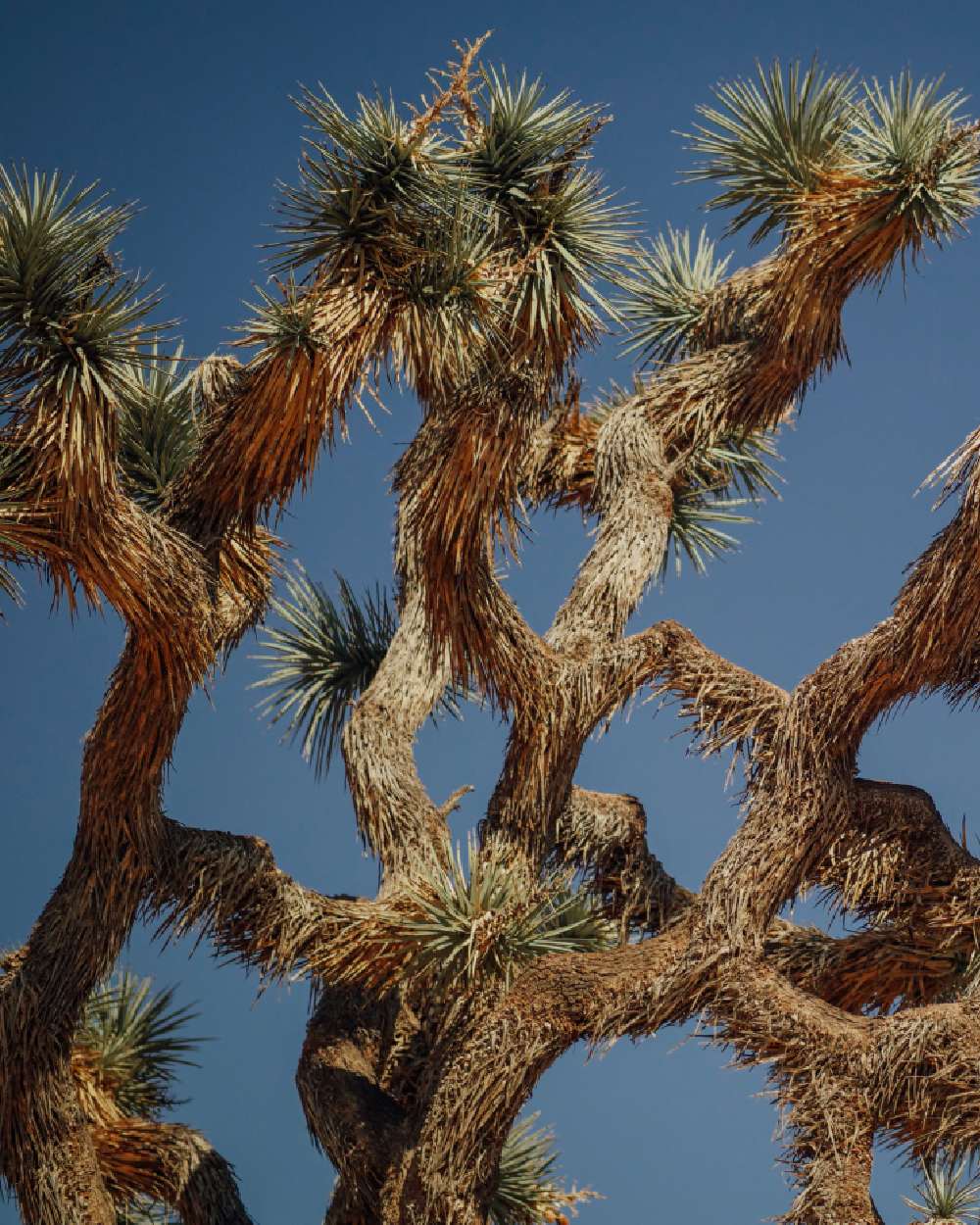Joshua Trees Under Threat As Massive Wildfires Imperil Iconic Mojave Desert Symbols
Matthew Russell
The Joshua trees of the U.S. southwest, iconic symbols of the Mojave Desert, are facing a dire situation as massive wildfires continue to spread across their habitat. As CNN reports, the recent York Fire, now California's largest fire of the year, has already scorched over 82,000 acres in the biodiverse Mojave National Preserve, posing a significant threat to these unique plants that can live for more than 150 years.
 Photo: Pexels
Photo: PexelsThe Joshua tree (Yucca brevifolia) is a species of yucca native to the southwestern United States.
Joshua Trees Under Fire
The Mojave National Preserve, a hotspot for biodiversity and a significant home to Joshua trees, is at risk due to the relentless wildfires. With millions of Joshua trees currently at risk, the fire is dramatically affecting the entire vegetation landscape, reports the Independent. The densest Joshua tree forest is currently within the burn area, making the situation even more critical.
While the fire's containment has reached 30%, the full extent of the damage to Joshua trees and other plant and animal life remains unknown. Preserve rangers will conduct thorough surveys by air and ground after the fire is extinguished to assess the impact.
 Photo: Pexels
Photo: PexelsThe Joshua Tree is an iconic symbol of the Mojave Desert, especially in Joshua Tree National Park.
The Devastating Aftermath
Fire whirls and extreme flames initially fueled the York Fire, making it dangerous and challenging to control. Even with progress being made by firefighters, the damage to the landscape will be long-lasting. Laura Cunningham, the California director of the Western Watersheds Project, remarked that it will take a lifetime to regenerate the mature Joshua trees lost in the blaze. Some may stump sprout or reseed, but the recovery process is slow and uncertain.
“It will take a lifetime to get those mature Joshua trees back,” Laura Cunningham, the California director of the Western Watersheds Project, told CNN affiliate KVVU. “Some are fire resistant, and if the flames are not too hot, they will stump sprout out or reseed.”
“If an area with Joshua trees burns through, most will not survive and reproduction in that area is made more difficult,” reports the National Park Service. “Wildfires could also result in the loss of irreplaceable resources in the park, like historic structures and cultural artifacts.”
 Photo: Pexels
Photo: PexelsJoshua trees are not actual trees but belong to the yucca plant family.
The Increasing Threat of Wildfires
Over the past decade, the Mojave National Preserve has experienced an increase in fire frequency due to wet winters and invasive grasses. The combination of these factors poses a significant threat to the survival of Joshua trees, reports the Los Angeles Times. The loss of Joshua trees in wildfires can lead to difficulties in reproduction, impacting the ecosystem's overall health. Additionally, vital resources in the park, such as historic structures and cultural artifacts, may be irretrievably lost to the flames.
A Unique Challenge
The Mojave Desert's rain is seasonal and scarce, presenting a unique challenge for firefighters. Heavy downpours aid containment efforts, but they also stir the activity of desert tortoises, a federally threatened species. Fire crews must carefully balance fire suppression with the protection of critical tortoise habitat, ensuring that active individuals and burrows are avoided.
 Photo: Pexels
Photo: PexelsJoshua trees have a slow growth rate, taking several decades to reach maturity.
The Bigger Picture
While firefighters are doing their best to contain the York Fire and protect critical habitats, the larger issue of wildfire prevalence across the country remains a concern. More than 1.1 million acres have already burned across the U.S. in 2023, with hot and dry conditions contributing to the spread of fires in multiple states, CNN reports.
https://youtu.be/bCgymvjDCYM
A Call to Preserve
The situation of the iconic Joshua trees calls for collective efforts to safeguard their existence. Conservationists, firefighters, and communities must work together to address the challenges posed by wildfires and invasive species, and to preserve the unique biodiversity of the Mojave National Preserve.
As we contemplate the devastating effects of wildfires on the Joshua trees and their ecosystem, let us remember the importance of taking proactive measures to protect our precious natural heritage for generations to come.

